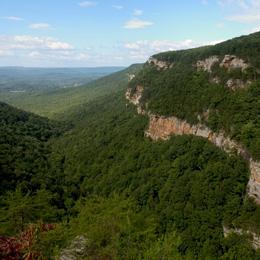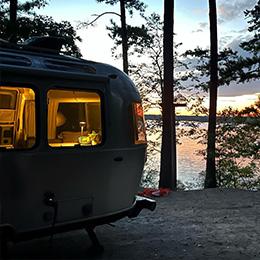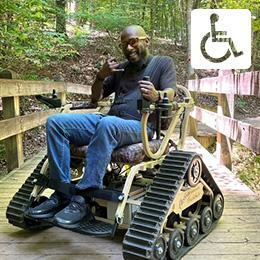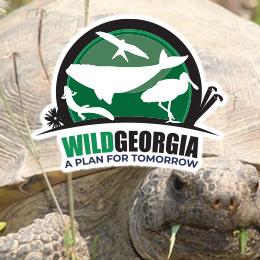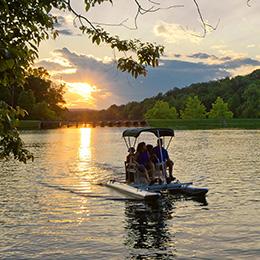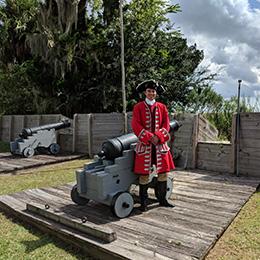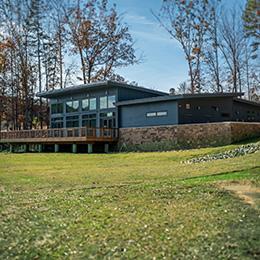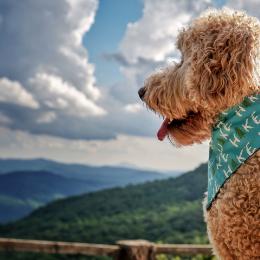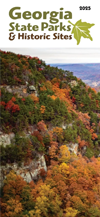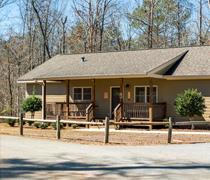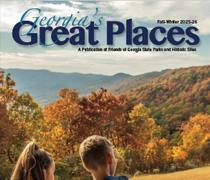
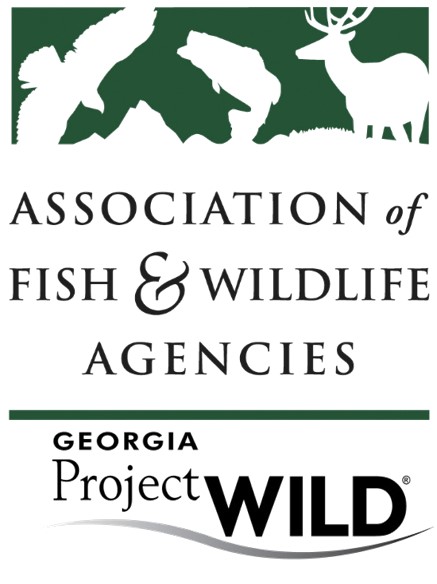
Project WILD is an interdisciplinary conservation and environmental education program emphasizing terrestrial and aquatic wildlife resources. The goal of Project WILD is to assist learners of any age in developing awareness, knowledge, skills, and commitment resulting in informed decisions, responsible behavior, and constructive actions concerning wildlife and the environment. From awareness to action, this hands-on approach to learning engages students in investigating the world around them, connecting them to conservation careers, and participating in solid STEM activities.
Workshops
Project WILD's mission is to help students learn how to think, not what to think, about wildlife and the environment. All curriculum materials are backed by sound theory and instructional practices representing many fields of education and natural resource management from across the country. The curriculum guides encourage educators to give students opportunities to address contemporary issues knowledgeably, constructively, and responsibly.
The three major themes of the curriculum guides are:
- Ecological Knowledge
- Social and Political Knowledge
- Sustaining Fish and Wildlife Populations
During workshops, participants learn about Project WILD and sample activities from the Terrestrial and Aquatic guides.
- Educator Workshops
- Advanced Workshops
- Growing Up WILD Workshops
- Flying WILD Workshop
- Facilitator Workshops
- Project WILD Resources
Educator Workshops
During theses one-day workshops, participants receive a set of activity guides that focus on terrestrial and aquatic natural resource concepts. The Project WILD materials have been classroom tested and provide a framework to assist teachers in taking students from an awareness of the nature to responsible actions concerning the environment.
October 4th - Project WILD Educator Workshop at the Bear Creek Nature Center, Chattahoochee Hills, GA. 9:00 am – 5:00 pm To register email abrezina@landmark-cs.org
October 17th - Project WILD Educator Workshop at the Tree of Learning in Tucker, GA. 9:00 am – 5:00 pm To register email thetreeoflearninginc@gmail.com>
October 25th - Register for theProject WILD Educator Workshop at the Charlie Elliott Wildlife Center in Mansfield, GA. 8:30 am – 4:30 pm.
Advanced Workshops
Project WILD hosts advanced workshops for educators who want to learn more about wildlife and the environment. These hands-on programs provide in-depth information on specific wildlife topics to help you prepare detailed lesson plans.
Climate Resilience Workshop: Climate change is a complex topic that can be intimidating to teach. However, understanding climate, including the ways it is changing and how that impacts the environment, is crucial to making informed decisions and building resilience. This training will introduce climate guides from Projects WET, WILD and Learning Tree which include 31 activities to incorporate climate change topics into your lesson plans or programs. This training is open to formal and non-formal educators and activities are created with Middle and High School age students in mind.
Teacher Conservation Workshop: Join us for a five-day summer professional development event that explores forestry and natural resources management and how the two are interconnected. Activities are led by foresters, biologists, educators, and industry professionals. This interdisciplinary workshop focuses on the environmental, economic, and social benefits of Georgia’s forestry and wildlife communities.
Outdoor Wildlife Leadership School: Examines the flora and fauna of the different ecoregions of Georgia though hands-on activities around research and conservation. In 2025 participants will spend five days learning via hands-on activities and day trips in the Coastal region of Georgia. Educators will Delves into GA's coastal ecosystem and lower coastal plain with canoeing in the Okefenokee Swamp, birding at Altamaha WMA and exploring the GA Sea Turtle Center on Jekyll island, and hiking through a salt marsh on Sapelo Island.
For more information, contact Kim Morris-Zarneke, State Project WILD Coordinator at kim.morris-zarneke@dnr.ga.gov.
Growing Up WILD
Growing Up WILD: Exploring Nature with Young Children is an early childhood education activity guide written for children ages 3-7 that builds on children’s sense of wonder about nature and invites them to explore wildlife and the world around them. Through a wide range of activities and experiences, it provides a foundation for developing positive impressions about nature while also building lifelong social and cognitive skills.
Growing Up WILD’s activity guide:
- Features 27 field-tested, hands-on, nature-based activities Including crafts, art projects, music, conservation activities, reading and math connections and much more.
- Supports developmentally appropriate practice allowing children to learn at levels that are individually, socially, and culturally appropriate.
- Is correlated to the National Association for the Education of Young Children (NAEYC) Standards and the Head Start Domains.
December 13th – Register for the Triple Early Childhood Workshop at the Charlie Elliott Wildlife Center in Mansfield, GA. Join Projects WET, WILD and Learning Tree (PLT) to explore three early childhood curricula targeting ages 3-9. Receive three curriculum guides and instruction on incorporating 49 classroom-tested activities and lesson plans into your learning environments. 8:30 am – 4:00 pm.
Flying WILD
Flying WILD is birding based activity guide that introduces students to bird conservation through hands-on classroom activities that are interdisciplinary, standards-based lessons that engage students in real-world learning. The Flying WILD guide includes suggestions, instructions, and resources for doing service leaning activities, such as conducting a school bird festival and participating in habitat improvement projects. Flying WILD was written for middles school grades; however, we have adaptations for the K-12 classroom that we will share.
March 7th– Register for the <Flying WILD Workshop at the Charlie Elliott Wildlife Center in Mansfield, GA. 8:30 am – 12:30 pm.
Facilitator Workshops
For individuals looking to become certified to lead their own workshops in Project WILD. Most trained facilitators conduct workshops as a part of their duties in their day-to-day employment. Great examples include preservice education professors, extension educators, museum/nature center staff, natural resource professionals, school district curriculum specialists, and more.
Upcoming Workshops
Stay tuned for future dates!
Project WILD Resources
- National Project WILD Resources
- Correlations to the Georgia Standards for Excellence – the WILD Activity Guides have been correlated to the Georgia Standards for Excellence in Science, Language Arts, Math and Social Studies. Our searchable database allows you to find an activity that meet the standards you are teaching
- Georgia Biodiversity Portal
- Georgia Project Learning Tree
- Georgia Project WET
- Georgia River of Words
- Educational Resources for Educators and Families
- Introduction to Georgia's Natural History: The purpose of this guide is to supplement the Project Wild (PW) curriculum with natural history information specific to Georgia. This guide seeks to provide a basic introduction to key habitats and wildlife for each physiographic region within Georgia and provide references for further study and field trip sites.
- “Busy Bees, Busy Blooms” Badges: images of Georgia native plants and pollinators you can use for the “busy bees, busy blooms” activity in the WILD terrestrial guide.
- Meme for Adaption Artistry
- Meme for Fashion a Fish
- Limiting Factors: How Many Bears? - Georgia Adaptation
- Here To Day, Gone Tomorrow- GA Species Profiles
- "Oh Deer" Card Game
- What's Your Wingspan? Worksheet (with measurements)
- Facilitator Corner





